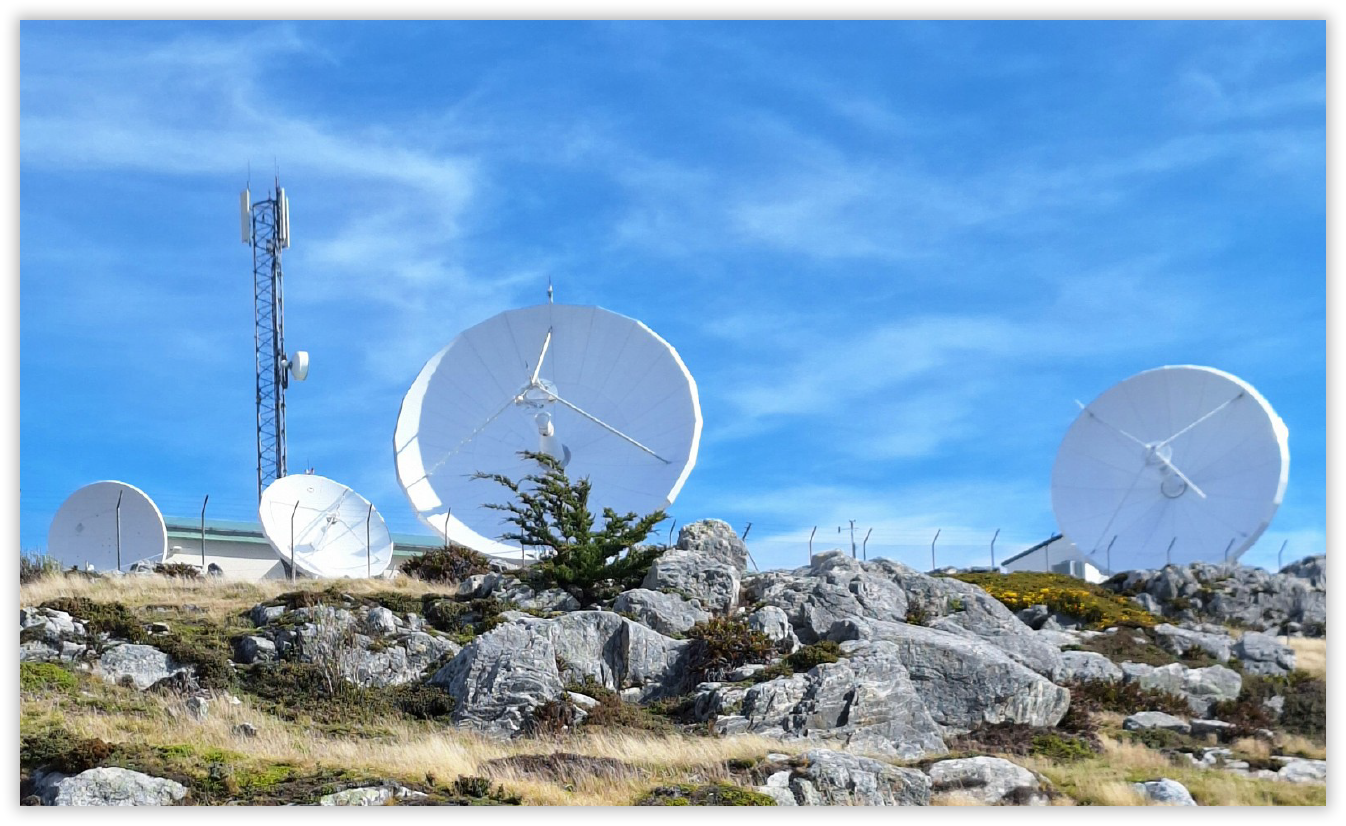
The Falkland Islands Public Accounts Committee (PAC) released an important report this week on payments from the Falkland Islands Government (FIG) to Sure South Atlantic (Sure SA), dated May 2025. The report is subtitled as:
“Report of an investigation into payments of over £8 million made (or to be made) by FIG to Sure South Atlantic Limited between 2018/19 and 2026/27 for improvements to broadband service and the Camp mobile network.”
The full, 31-page public report (with a few redactions) can be downloaded here or from the PAC website.
For those not familiar with the role of the PAC, it examines public accounts and audit reports presented to the Legislative Assembly. It advises the Governor on auditing arrangements, priorities, and effectiveness, including oversight of external auditors of Government accounts. The Committee comprises two Assembly members, a chairman, and two appointed members. It may also review the accounts of any body receiving public funds or involving government shareholding, such as Sure SA, who have an exclusive licence to provide telecommunications services in the Falkland Islands.
Penguin News reports that at a recent Legislative Assembly meeting, a motion was passed to note the PAC report’s recommendations, and a written response is required to be submitted to the Assembly by the Governor within 6 months.
This OpenFalklands post summarises and discusses the content of this report.

Key Themes of the PAC Report
Large Public Expenditure
- Over £8 million (2018–2027) paid by FIG to Sure SA. Primarily for broadband improvements, with smaller amounts for Camp mobile coverage.
- This equates to ~£1m/year or ~£300 per Falklands resident per year.
Purpose of Payments
- Improve broadband speeds, data quotas, and affordability.
- Expand Camp mobile coverage.
- Introduce new technologies (e.g., LEO satellites for low latency).
Concerns About Value for Money
- Improvements have been delivered, but often only with FIG subsidy.
- The failed rollout of OneWeb LEO services in 2024 left customers worse off for a time.
- Lack of transparency: PAC couldn’t access full contracts, KPIs, or performance monitoring data.
- FIG has limited safeguards to manage financial risks.
Starlink & Competition
- Starlink’s entry triggered Sure SA to launch unlimited packages without the need for FIG funding.
- Competition may be delivering improvements that subsidies and regulation could not.
Regulatory Weaknesses
- Sure SA holds an exclusive licence until 2027, with limited oversight.
- PAC notes FIG could not easily demand improvements without a subsidy.
- The effectiveness of regulation (price controls, universal service obligations) is questionable.
Public & Political Response
- The petition called for lower VSAT licence fees and more competition.
- The Select Committee recommended cutting the annual VSAT licence fee from £5,400 to £180.
- MLAs openly questioned whether FIG is “subsidising” Sure SA unnecessarily.

PAC Findings
Positive outcomes:
- Faster broadband speeds, larger quotas, and some lower prices.
- Expanded Camp mobile coverage.
Negative outcomes:
- Improvements came at high public cost.
- Service failures during the LEO rollout meant that customers sometimes received worse service.
- Unclear whether Sure SA was held accountable (contract breach vs “management matter”).
- The lack of objective data limited the PAC’s ability to fully assess value for money.

PAC Recommendations
KPIs (Key Performance Indicators):
- Attach clear KPIs to all subsidy agreements.
- Use incentives and penalties (e.g., liquidated damages).
Monitoring & Compliance:
- Strengthen performance monitoring under the 2022 agreement.
- Secure compensation or repayments where Sure SA failed to fulfil its obligations.
Future Planning (Post-2027):
- Take expert and legal advice for the next telecoms arrangements.
- Consult customers about needs.
- Balance competition vs universal service.

Overall PAC Conclusions
- Sure SA’s customers have benefited from some improvements, but these gains relied on heavy public subsidies.
- Failures (especially OneWeb/LEO) raise questions about FIG’s risk management.
- Without greater transparency and stronger regulation, it’s challenging to say FIG got value for money.
- The arrival of Starlink shows that competition may achieve improvements more effectively than subsidies.

Conclusions
Reading this report in full, it is hard to miss that both Sure SA and FIG are criticised, though in a measured way, as would be expected in a professionally written report. It is incredibly disappointing that, given the importance of this subject, the PAC Committee was not provided with the detailed information required to undertake a thorough study. The report does not suggest that an “Open Falklands” culture exists, as implied by the title of this blog.
Sure SA under-delivered on service, with the 2024 OneWeb rollout failing and services proving unreliable. Major improvements relied heavily on FIG subsidies, customer satisfaction remained low, and the company appeared to prioritise profit over service quality or innovation.
The Falkland Islands Government (FIG) is criticised for weak regulation, poor contract oversight, a lack of transparency, and exposing public funds to financial risk. Oversight gaps allowed Sure’s shortcomings to persist, and improvements were often achieved only through additional funding or public pressure.
Sure SA failed to meet expectations, but FIG’s inadequate oversight and weak accountability mechanisms enabled these failures, limiting effective scrutiny and public value.

Chris Gare, OpenFalklands, September 2025, copyright OpenFalklands

Many thanks for your analysis (and your tireless work in the past). But, One thing that puzzles me, given I know a little about the background to Sure SA gaining its licence, is WHY is FIG’s oversight so poor?
Without understanding why this situation has arisen, (and improvements identified), surely there is a risk of it continuing in the future, even if services moved to different providers? Thanks.